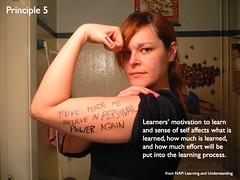 What are some of the ‘soft factors’ that influence a student’s initial experience of distance online learning? A couple of years back, this study sought to identify some of the key aspects that helped shape their experiences, as well as some of the expectations that they came with.
What are some of the ‘soft factors’ that influence a student’s initial experience of distance online learning? A couple of years back, this study sought to identify some of the key aspects that helped shape their experiences, as well as some of the expectations that they came with.
The study drew from video diaries submitted by 20 students, who were participating in their first semester of online courses. Tara García Mathewson from Education Dive summarises advice for online course creators and facilitators, taken from the study, as including:
- encouraging students to participate in support services from the beginning
- creating opportunities for students to interact with their peers and develop a sense of belonging
- offering additional training for students who may not be as comfortable with the course technology
- providing timely interventions to address a second at-risk period just before the end of the semester – the point just before their last assignment of their first course is due, where students and may begin to question their ability to complete their full programs (Mathewson, 2016, source).
If you are involved in online course design and/or facilitation, this article is a highly recommended read.
You can find the full paper here: Stories from students in their first semester of distance learning.
Image: Seven Principles of Learning. CC ( BY NC SA ) licensed Flickr image by Darren Kuropatwa: https://flic.kr/p/6Haxkh







